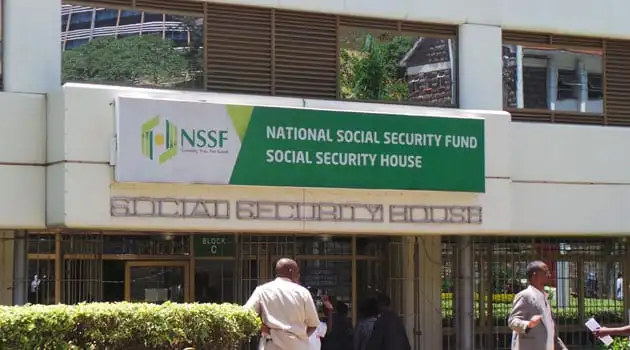After ruling that the law enabling the increments was unconstitutional, the High Court halted efforts to increase monthly contributions to the National Social Security Fund (NSFF) tenfold, up to Sh2,068, per month.
The NSSF Act of 2013 was declared invalid by Justices Mathews Nduma, Hellen Wasilwa, and Monica Mbaru because it did not follow the Constitution’s requirement that the people be consulted before key decisions are made.
The NSSF Act of 2013 proposed to increase employee payments from the current Sh200 per month and required employers to match the payment.
In order to provide workers with monthly stipends after retirement rather than the current one-time payment, the NSSF planned to increase pension payments.
President William Ruto’s social security strategy, which calls for raising NSSF monthly contributions, is negatively impacted by the ruling.
According to the President, the current rate is too low to accumulate funds that would allow for a comfortable retirement.
However, the court’s ruling has given employers some relief since they were expected to raise billions of shillings to match the workers’ contributions.
This has been bad news for businesses that are still struggling to recover from the coronavirus-induced recession that resulted in job losses, hiring freezes, and business closures.
Subscribe to our YouTube channel to catch your favorite Switch TV shows.
The frozen NSSF Act was declared invalid by the three judges because its proponents failed to obtain Senate approval even though the measure had an impact on county employees and the finances of the devolved governments.
“An order is issued prohibiting the government from compelling or requiring mandatory registration, enrolment, or listing of any employer or employee regardless of whether they are registered as members of any retirement benefits scheme or not….to register, enrol, or list and contribute their earnings or any party,” said the Judges.
The last time the contributions were reviewed was in 2001, when the rate was raised from Sh160 to Sh200.
The National Hospital Insurance Fund also lobbied for a higher rate, therefore enforcing the NSSF Act 2013 would have increased the likelihood of greater pay-slip deductions to cover social services.
According to the now-repealed Act, the combined pension contribution for the worker and the employer could not exceed Sh4,136, or 12 percent of the projected maximum pensionable earnings of Sh34,476.
However, in order to lighten the load on the workers, the State opted to stagger the payment over a five-year period. As a result, high earners would pay more than Sh15,000 each month, with their employers topping out at an equal amount in the fifth year.
After getting clearance from the Retirement Benefits Authority—the industry regulator—workers who have previously signed up for an occupational scheme would pay six percent of the minimum wage, or Sh360, in the first year.
The NSSF maintains that the dependency ratio in the nation is unacceptably high and that greater savings will enable people to retire with dignity.




























